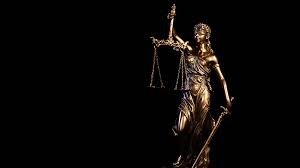Judicial restraint – Judges must restrain themselves from the areas reserved to the other separate branches. Thus, judicial restraint complements the twin, overarching values of the independence of the judiciary and the separation of powers.
Judicial restraint is consistent with and complementary to the balance of power among the three independent branches of the State. It accomplishes this in two ways. First, judicial restraint not only recognizes the equality of the other two branches with the judiciary, it also fosters that equality by minimizing inter-branch interference by the judiciary. In this analysis, judicial restraint may also be called judicial respect, that is, respect by the judiciary for the other coequal branches. In contrast, judicial activism’s unpredictable results make the judiciary a moving target and thus decreases the ability to maintain equality with the co-branches. Restraint stabilizes the judiciary so that it may better function in a system of inter- branch equality.
Second, judicial restraint tends to protect the independence of the judiciary. When courts encroach into the legislative or administrative fields almost inevitably voters, legislators, and other elected officials will conclude that the activities of judges should be closely monitored. If judges act like legislators or administrators it follows that judges should be elected like legislators or selected and trained like administrators. This would be counterproductive. The touchstone of an independent judiciary has been its removal from the political or administrative process. Even if this removal has sometimes been less than complete, it is an ideal worthy of support and one that has had valuable effects.
The constitutional trade – off for independence is that judges must restrain themselves from the areas reserved to the other separate branches. Thus, judicial restraint complements the twin, overarching values of the independence of the judiciary and the separation of powers. [Para 33, 34, 35]
If the legislature or the executive are not functioning properly it is for the people to correct the defects by exercising their franchise properly in the next elections and voting for candidates who will fulfill their expectations, or by other lawful methods e.g. peaceful demonstrations. The remedy is not in the judiciary taking over the legislative or executive functions, because that will not only violate the delicate balance of power enshrined in the Constitution, but also the judiciary has neither the expertise nor the resources to perform these functions. [Para 31]





